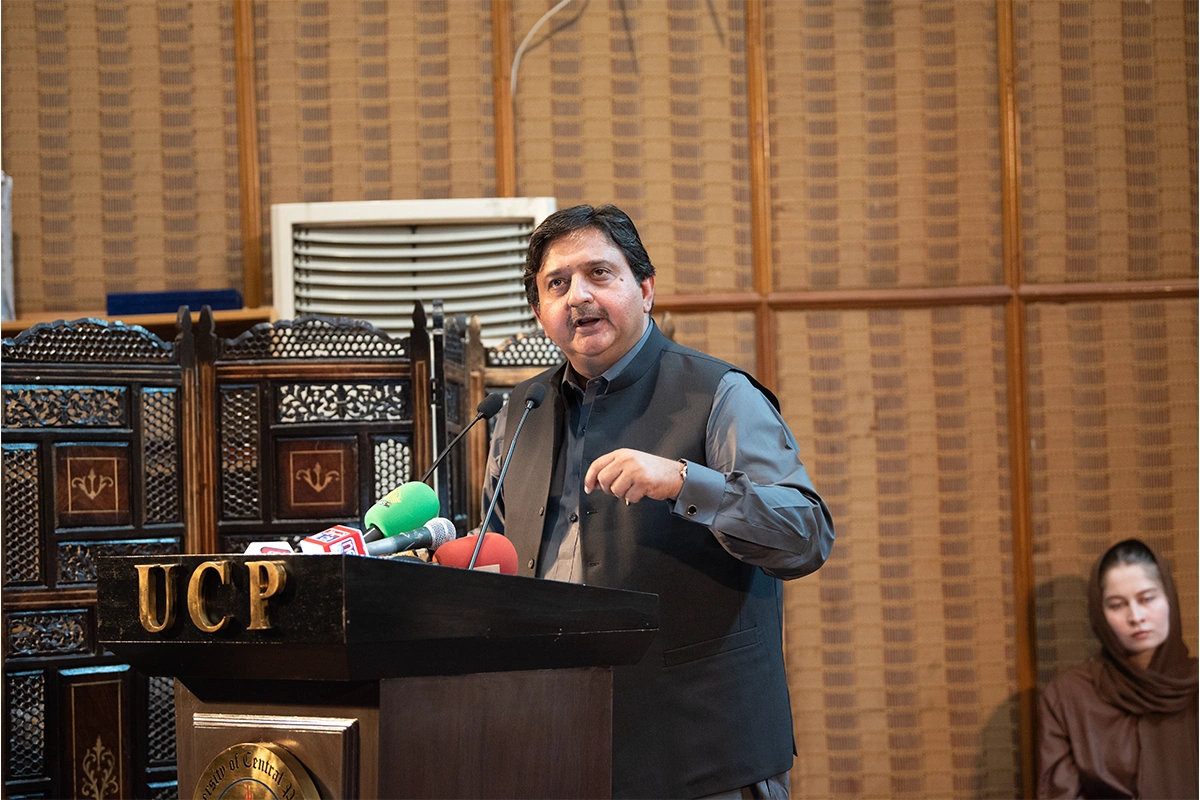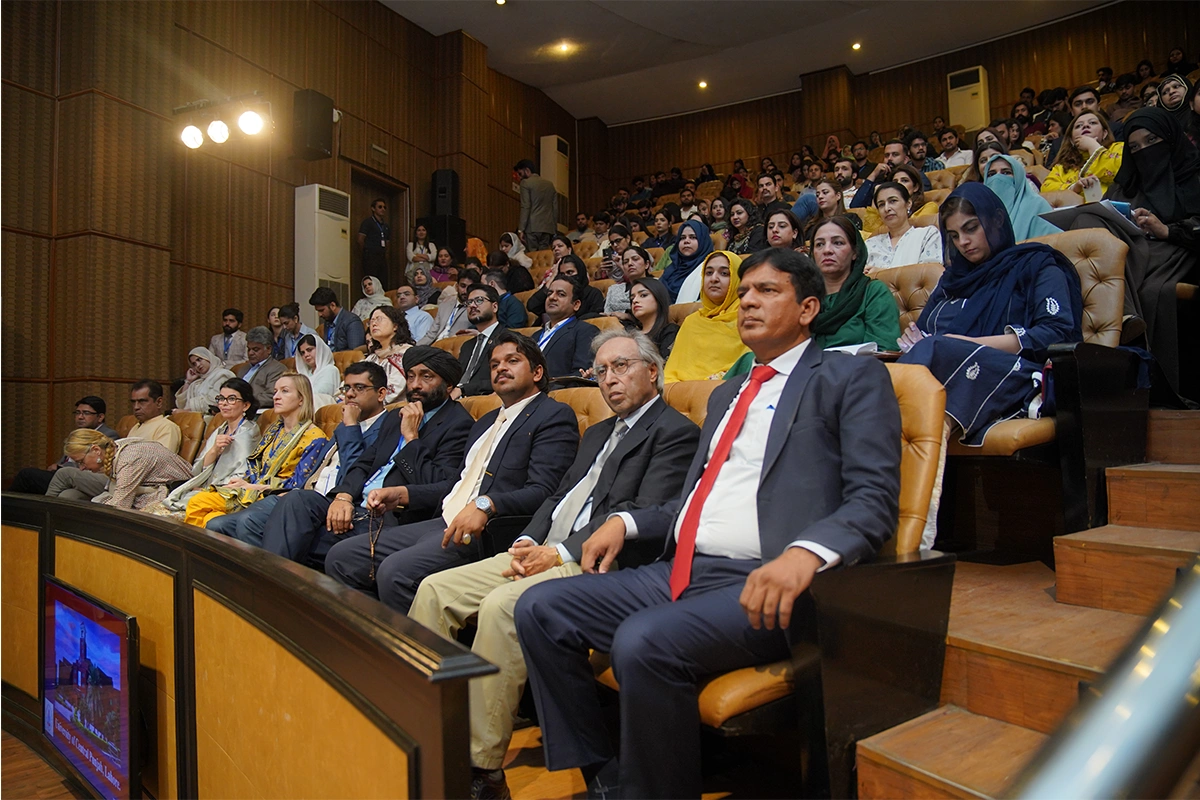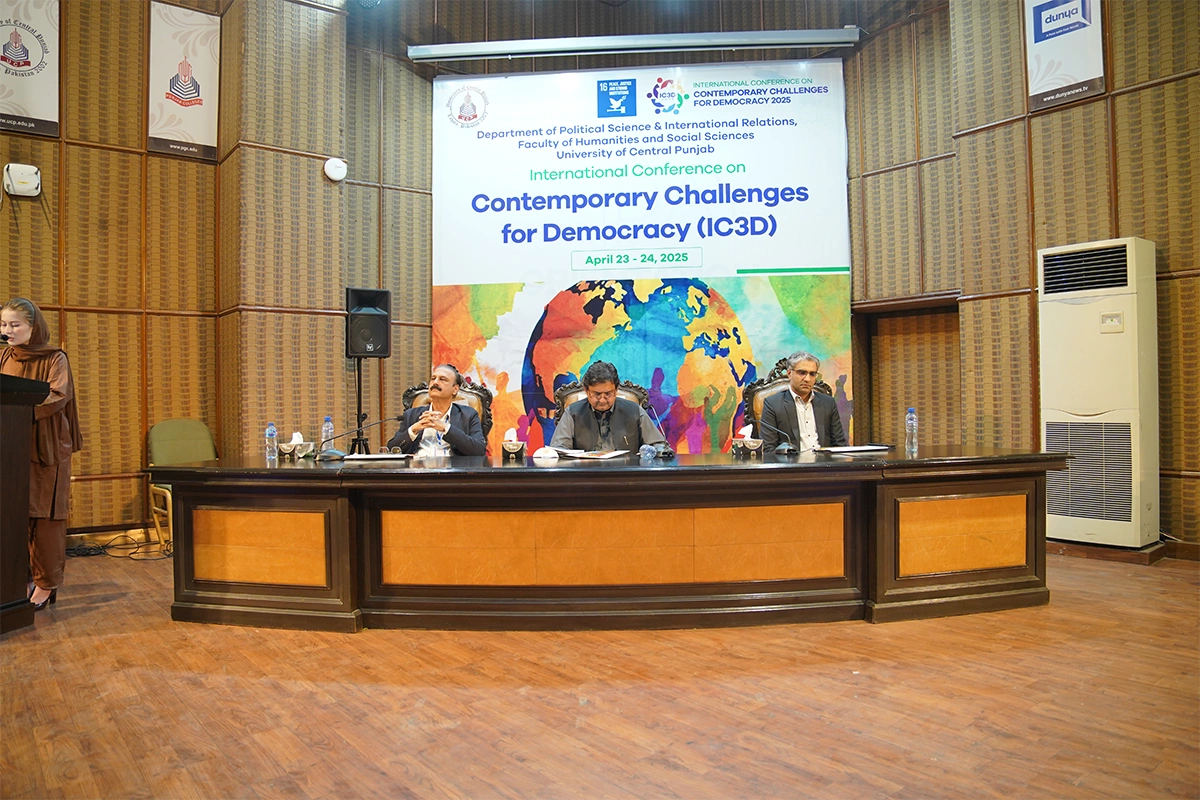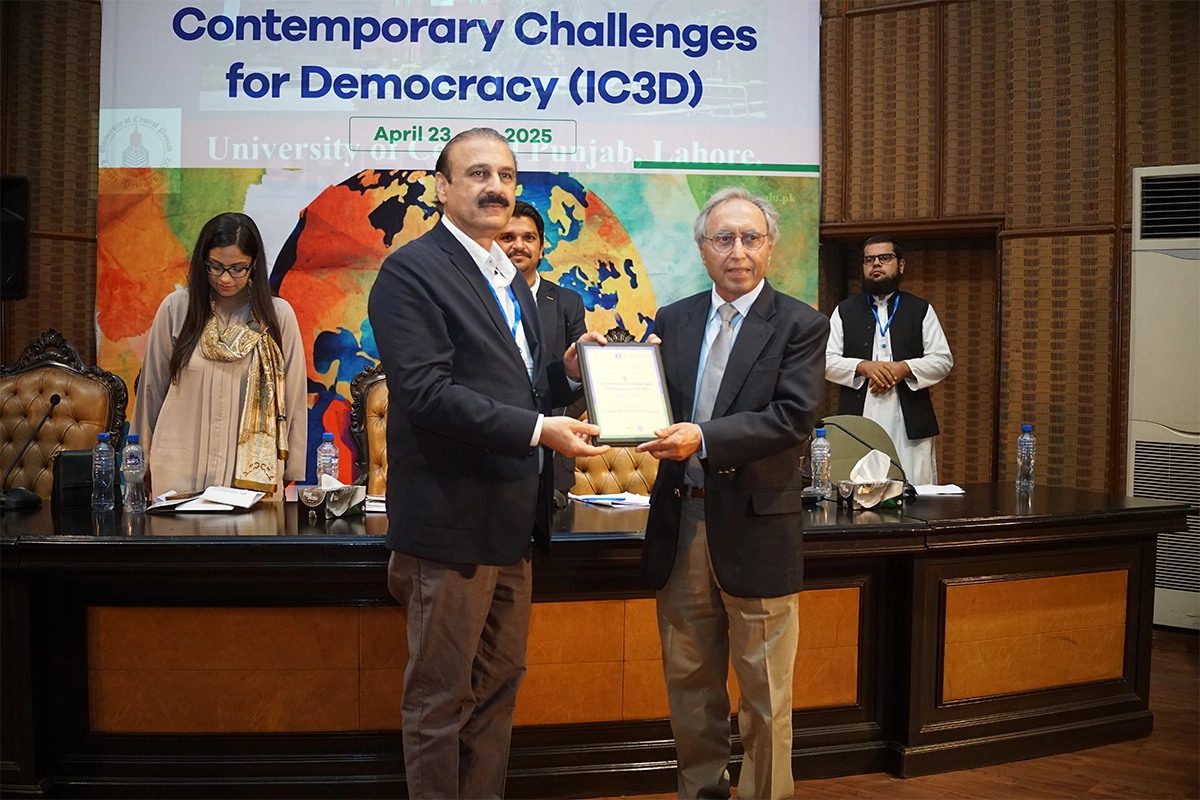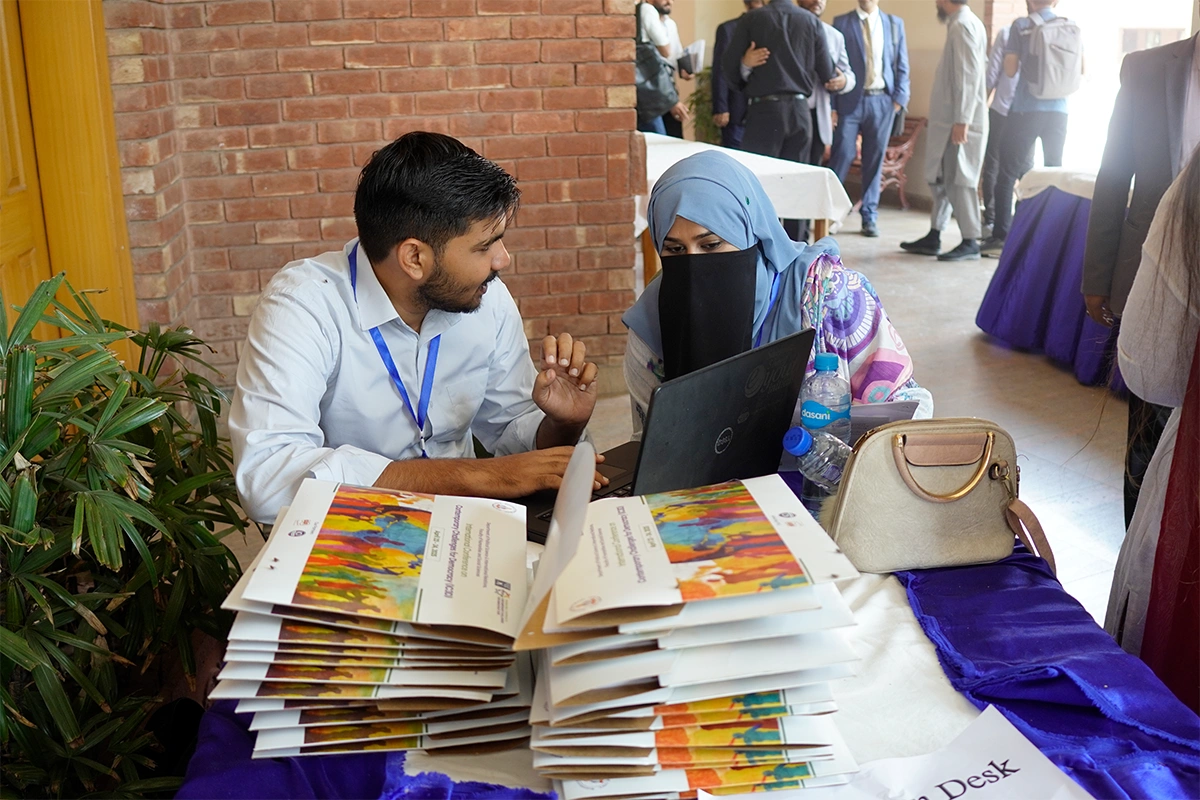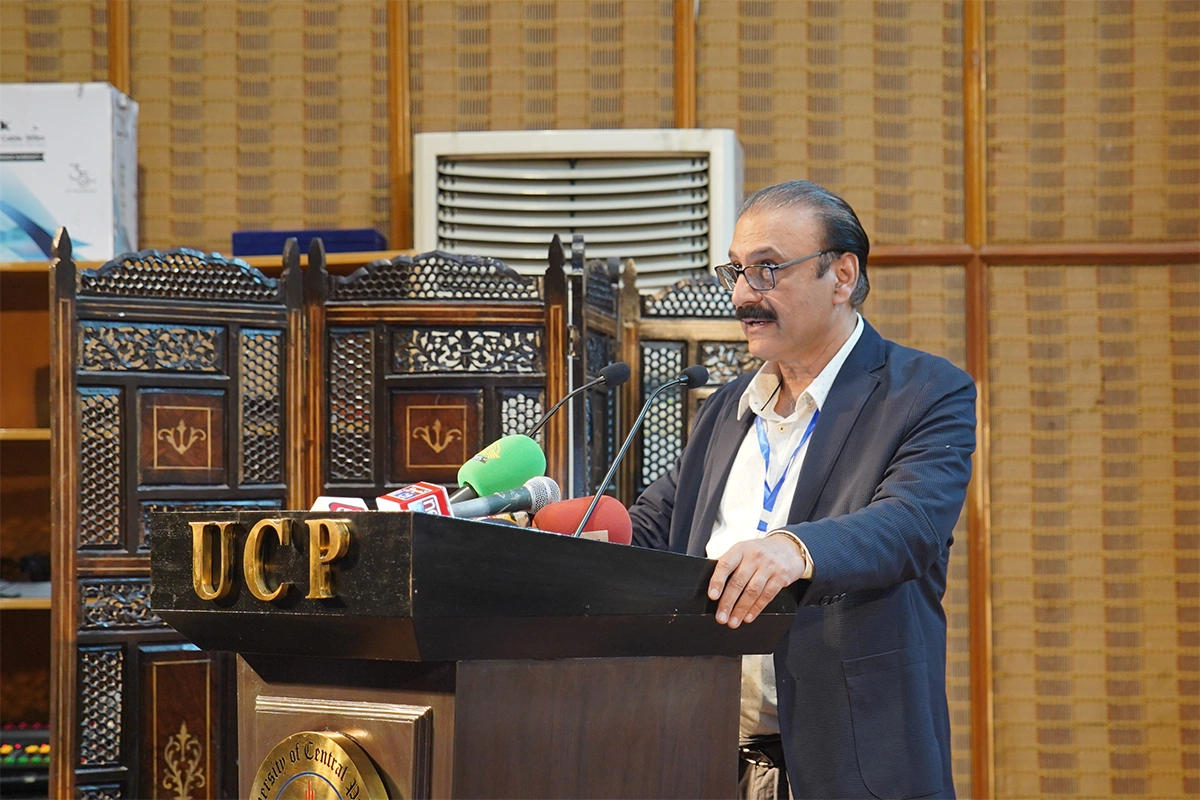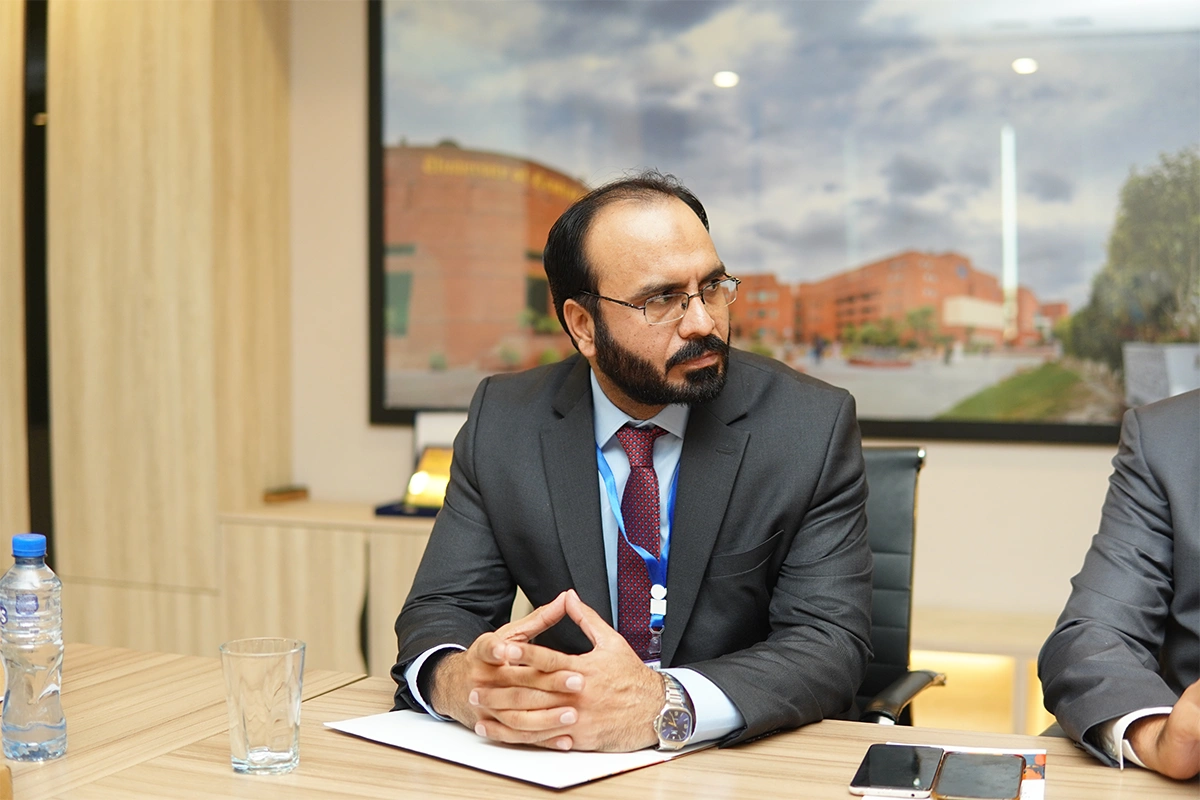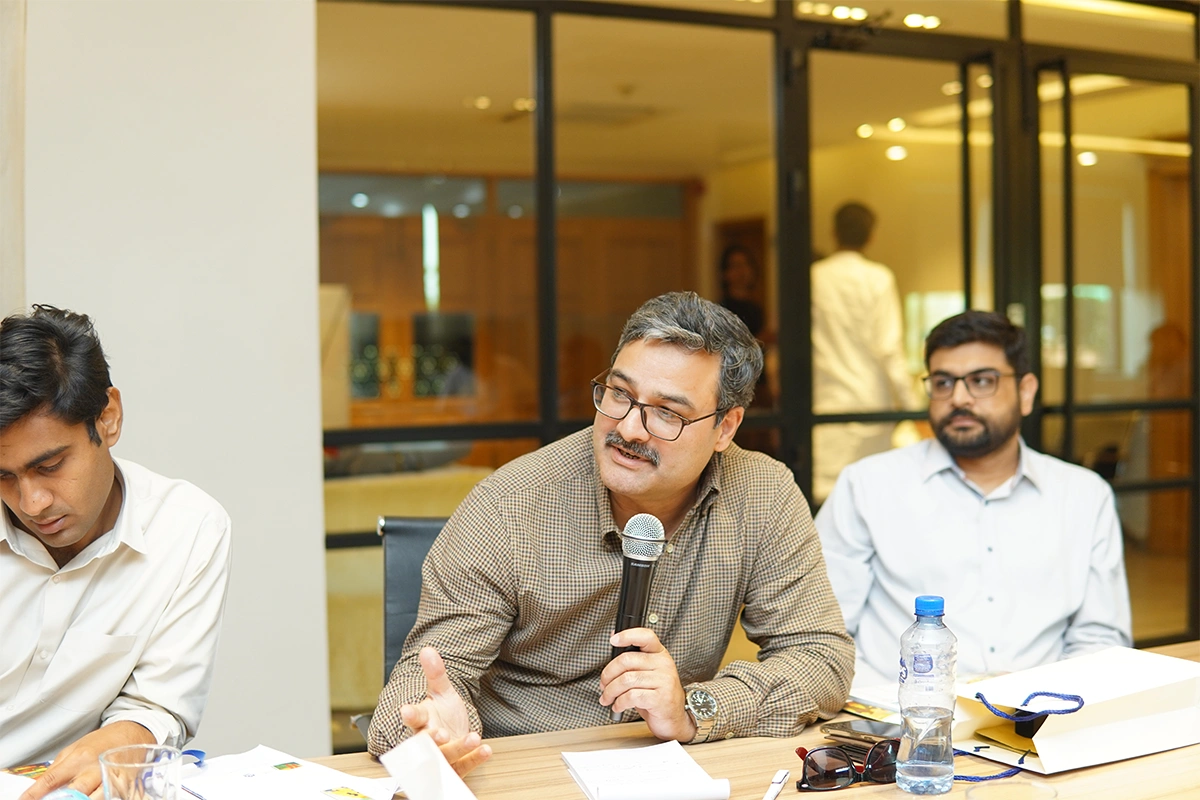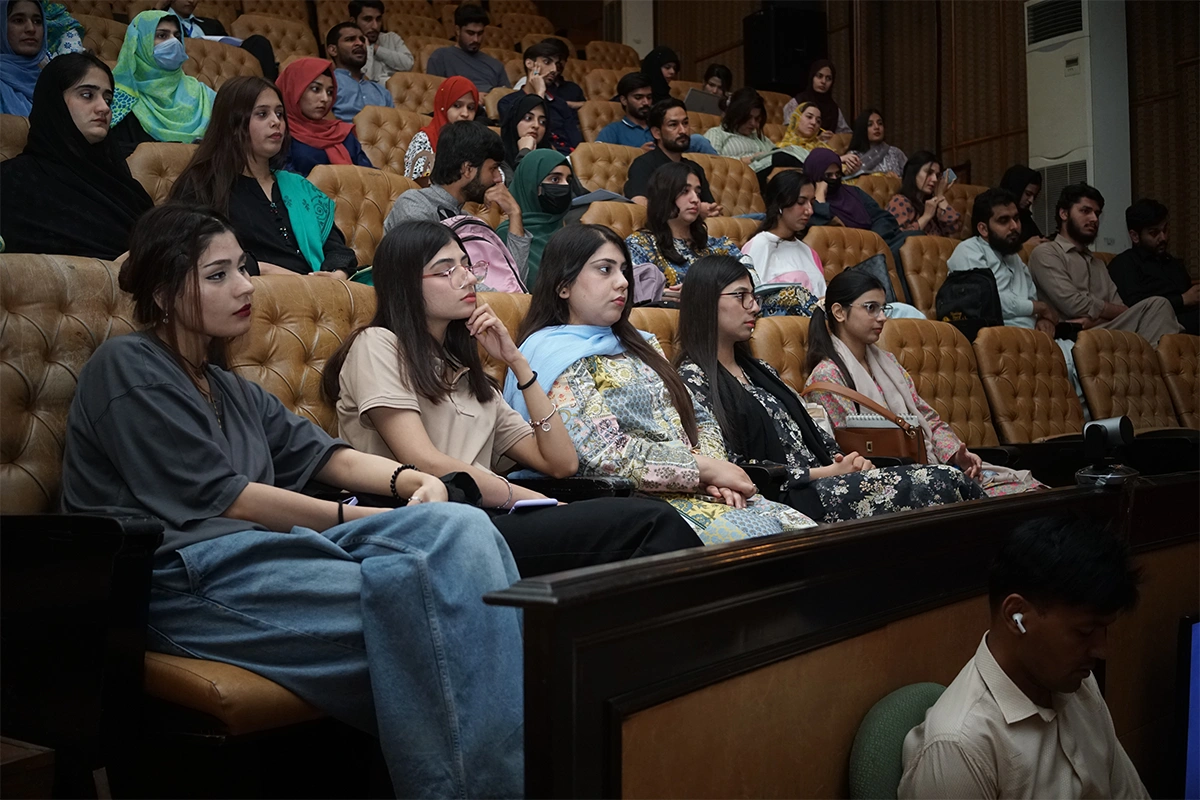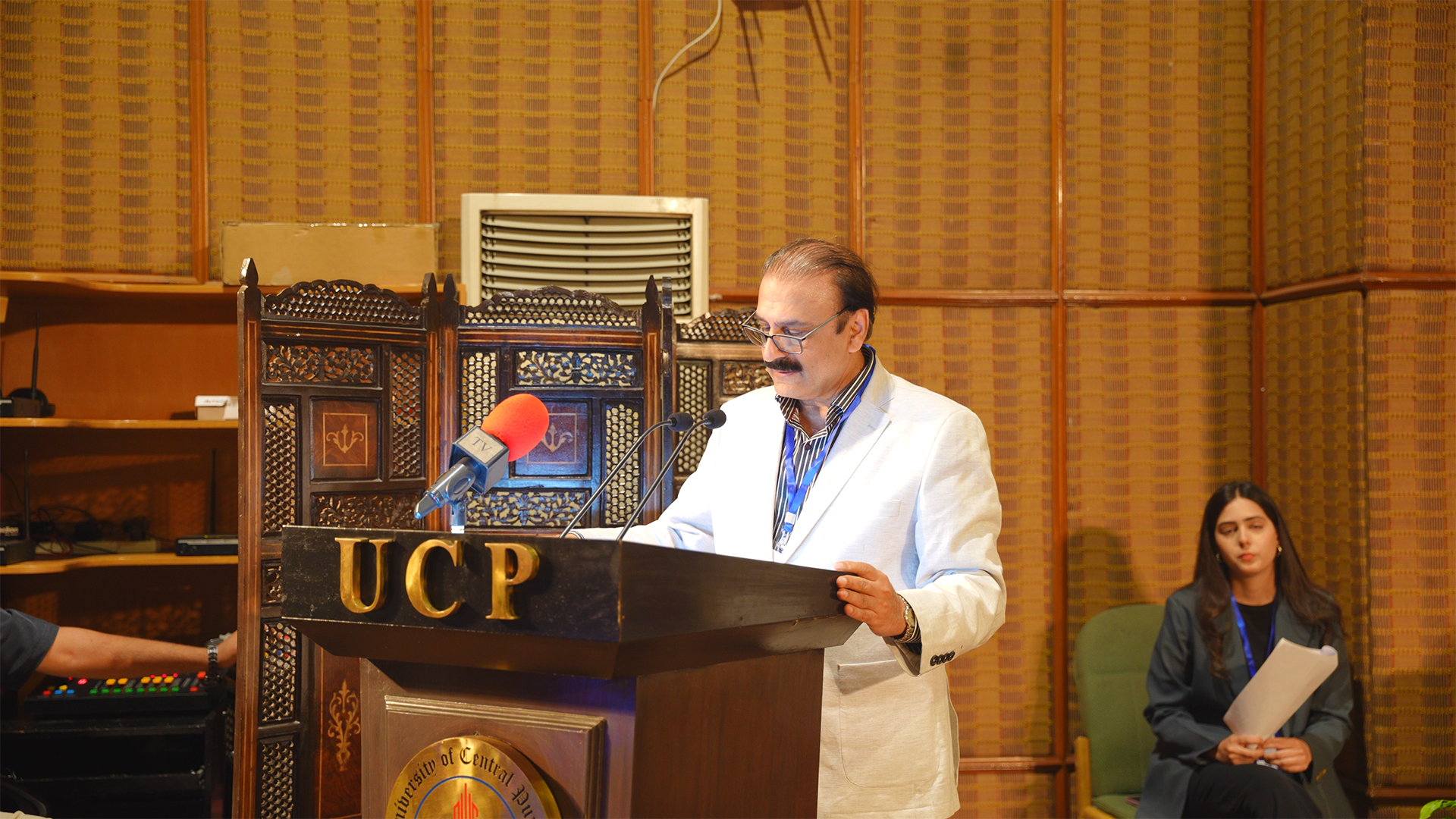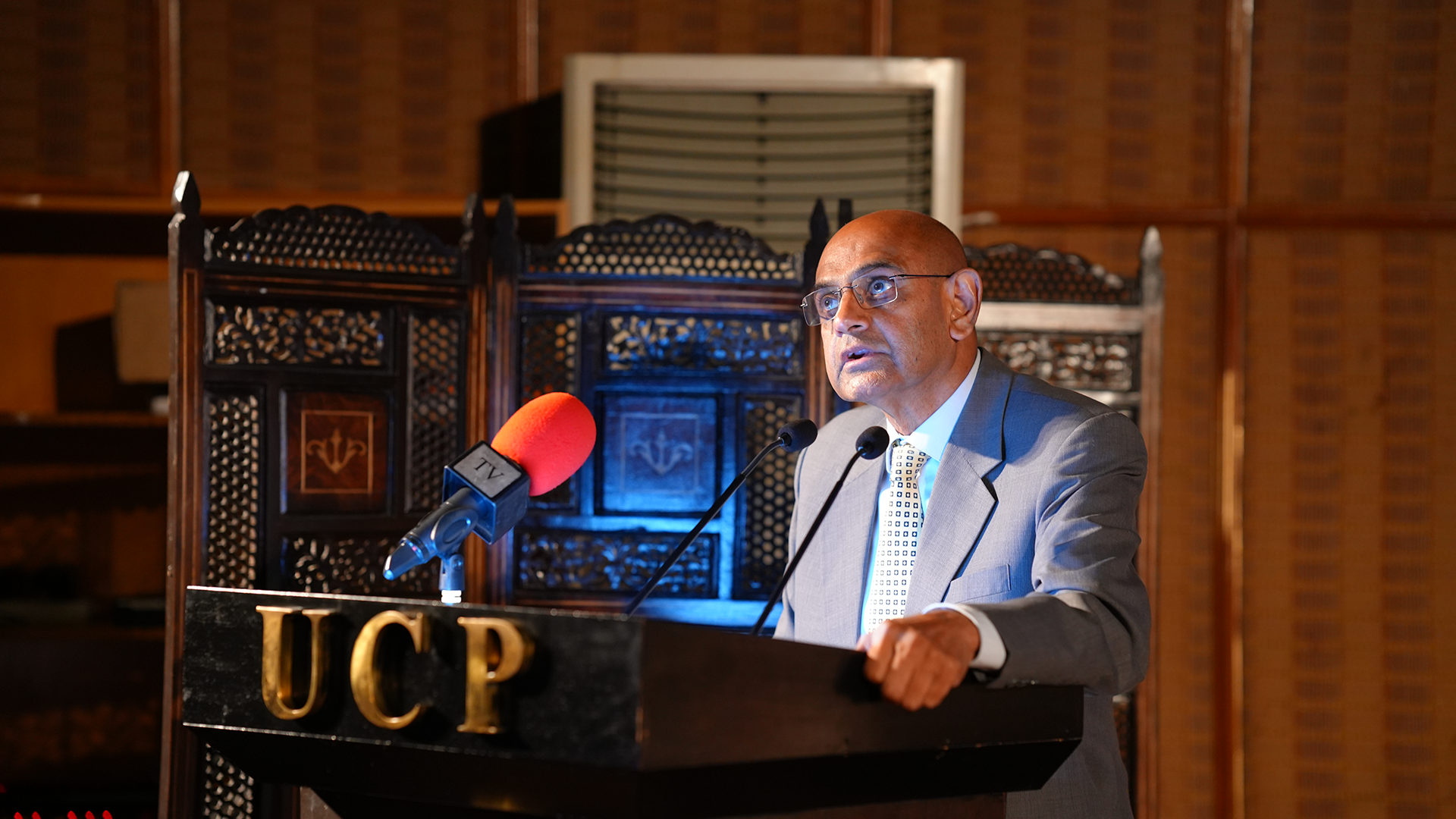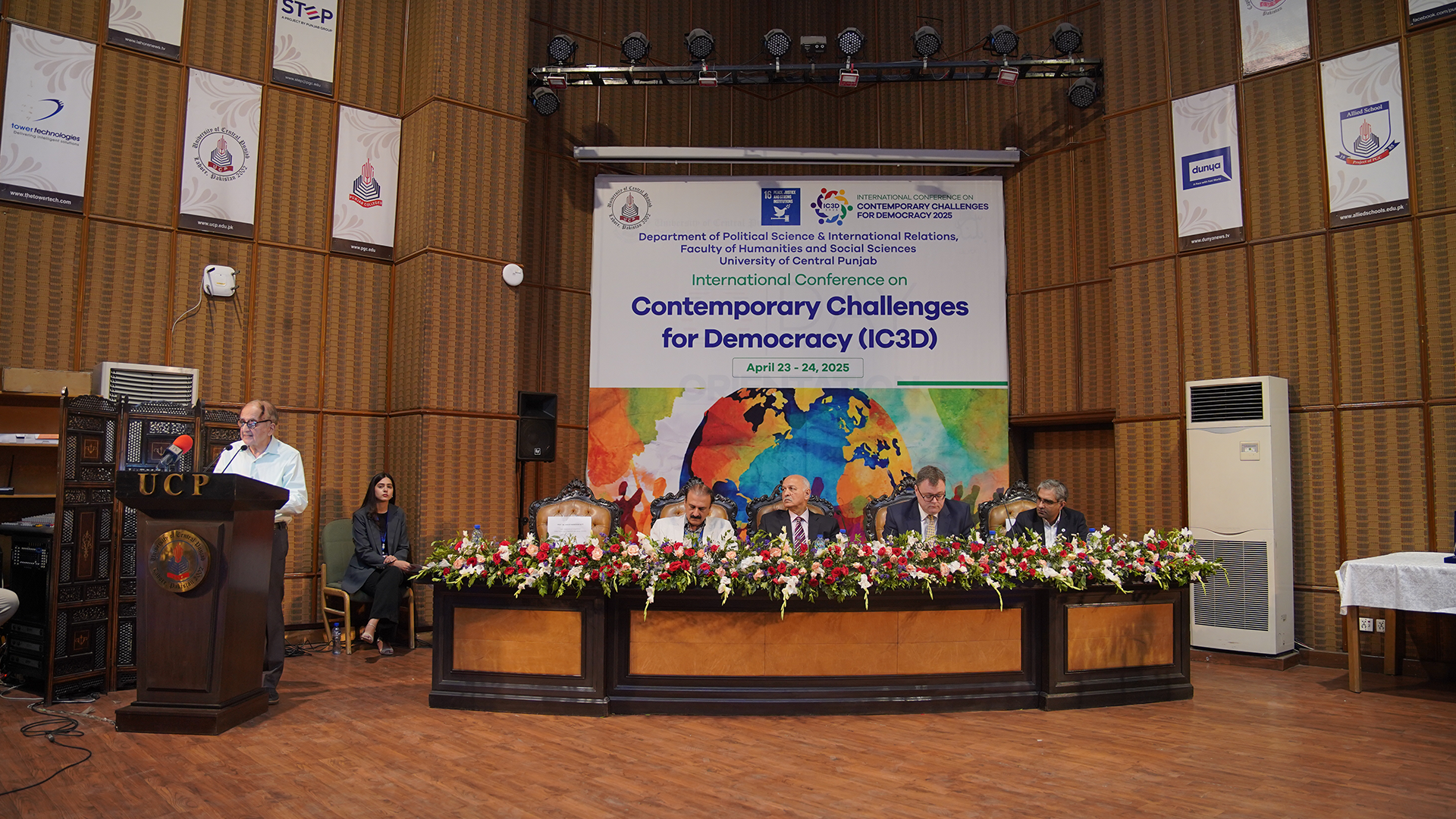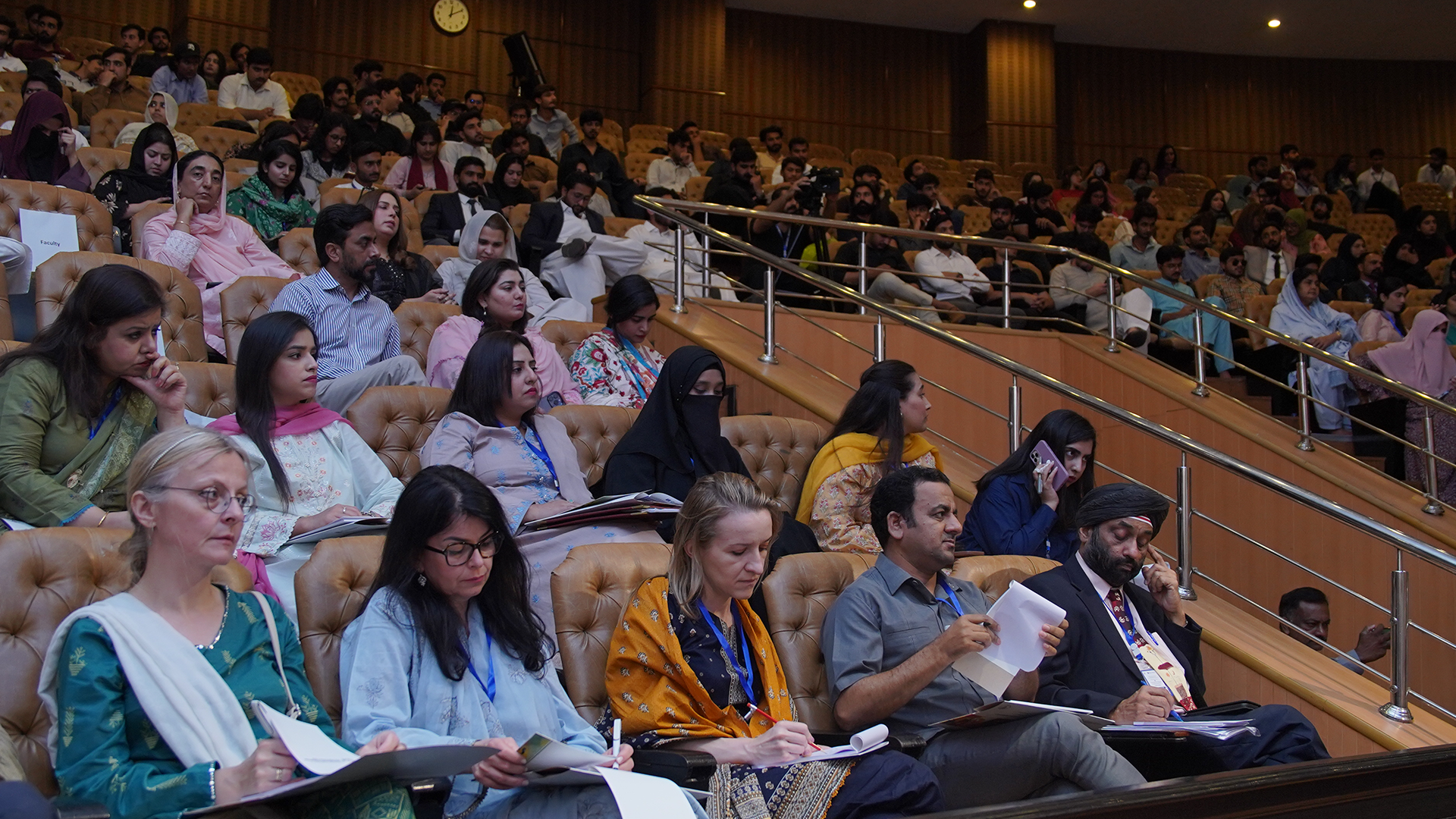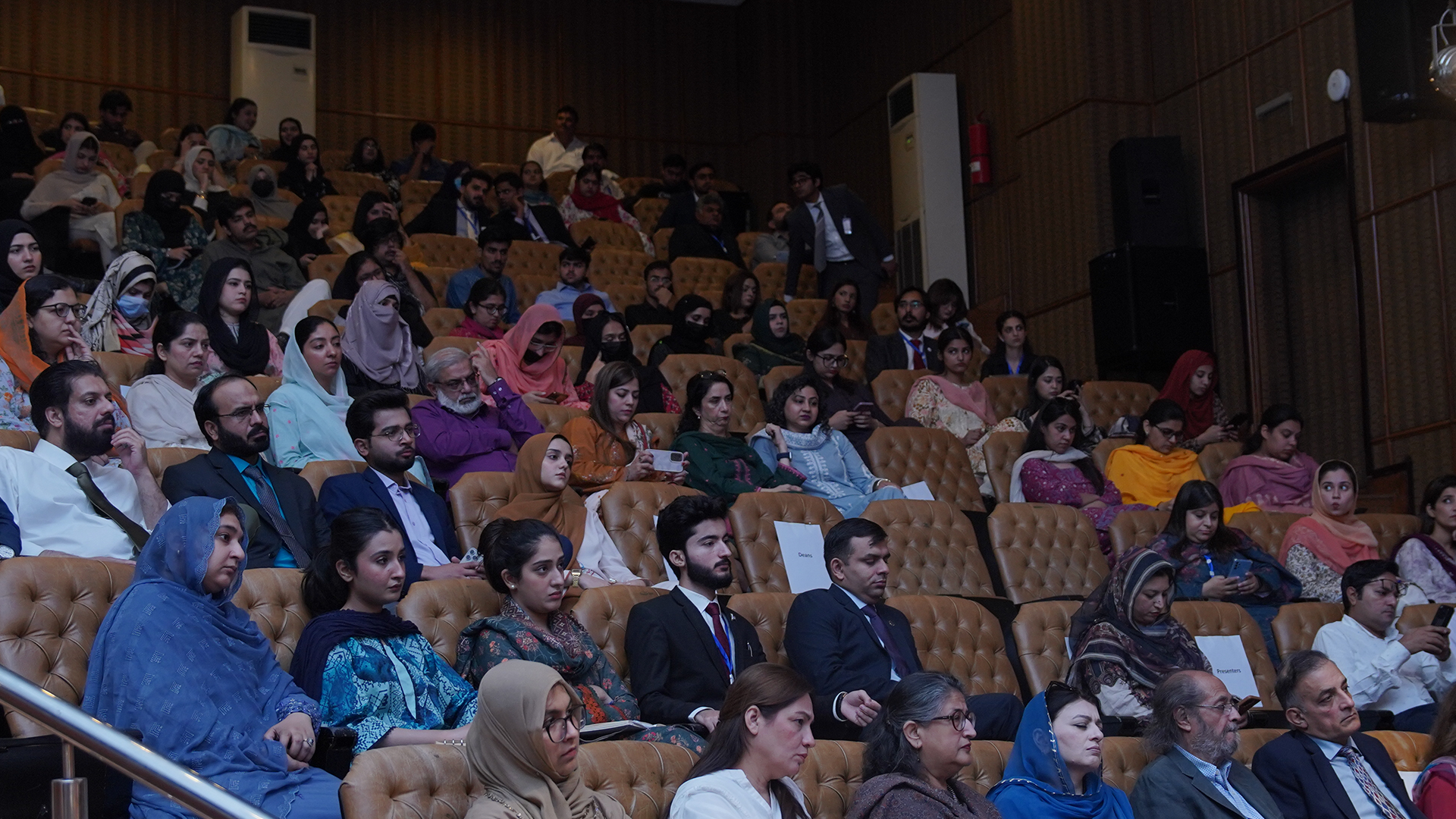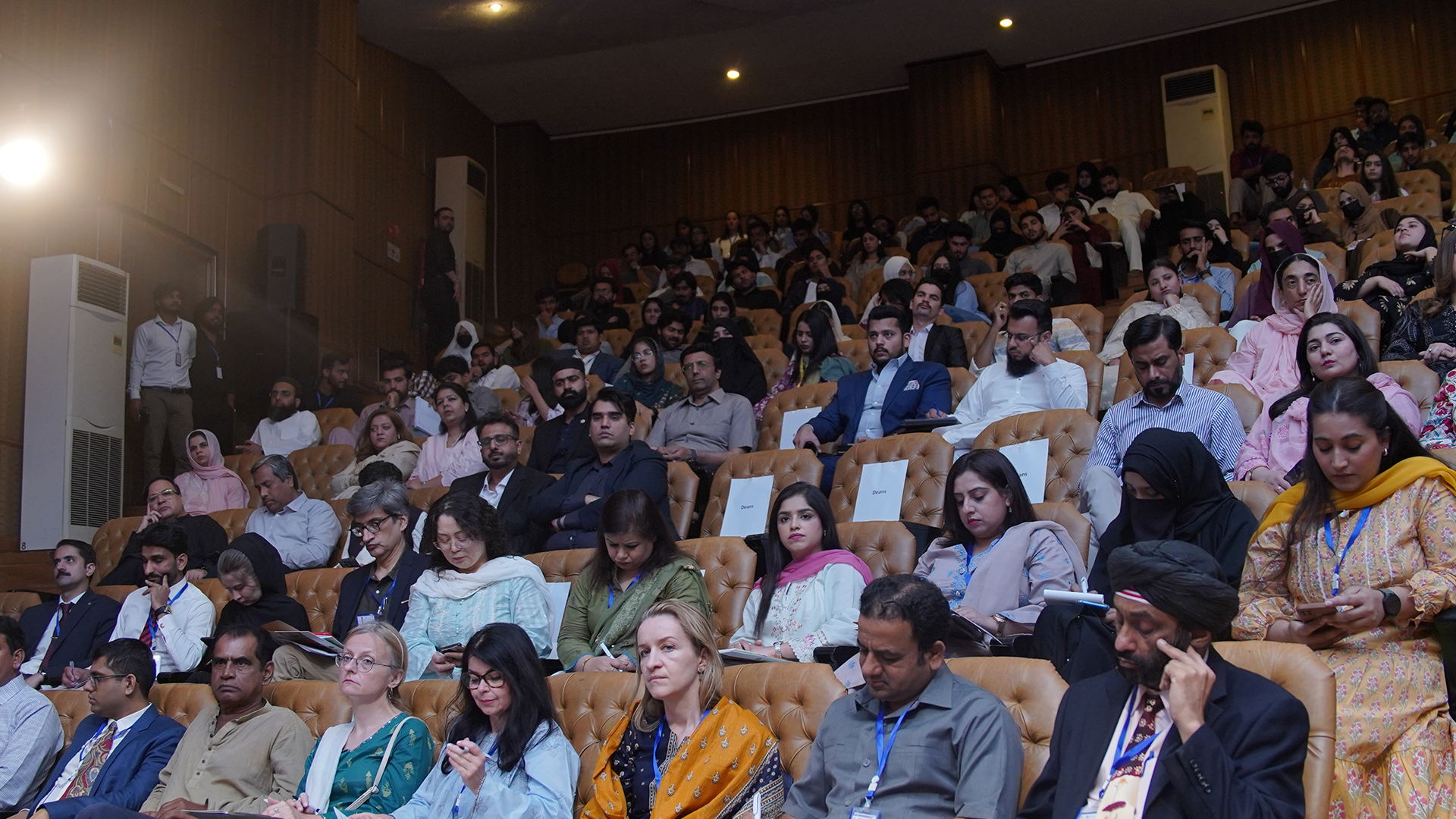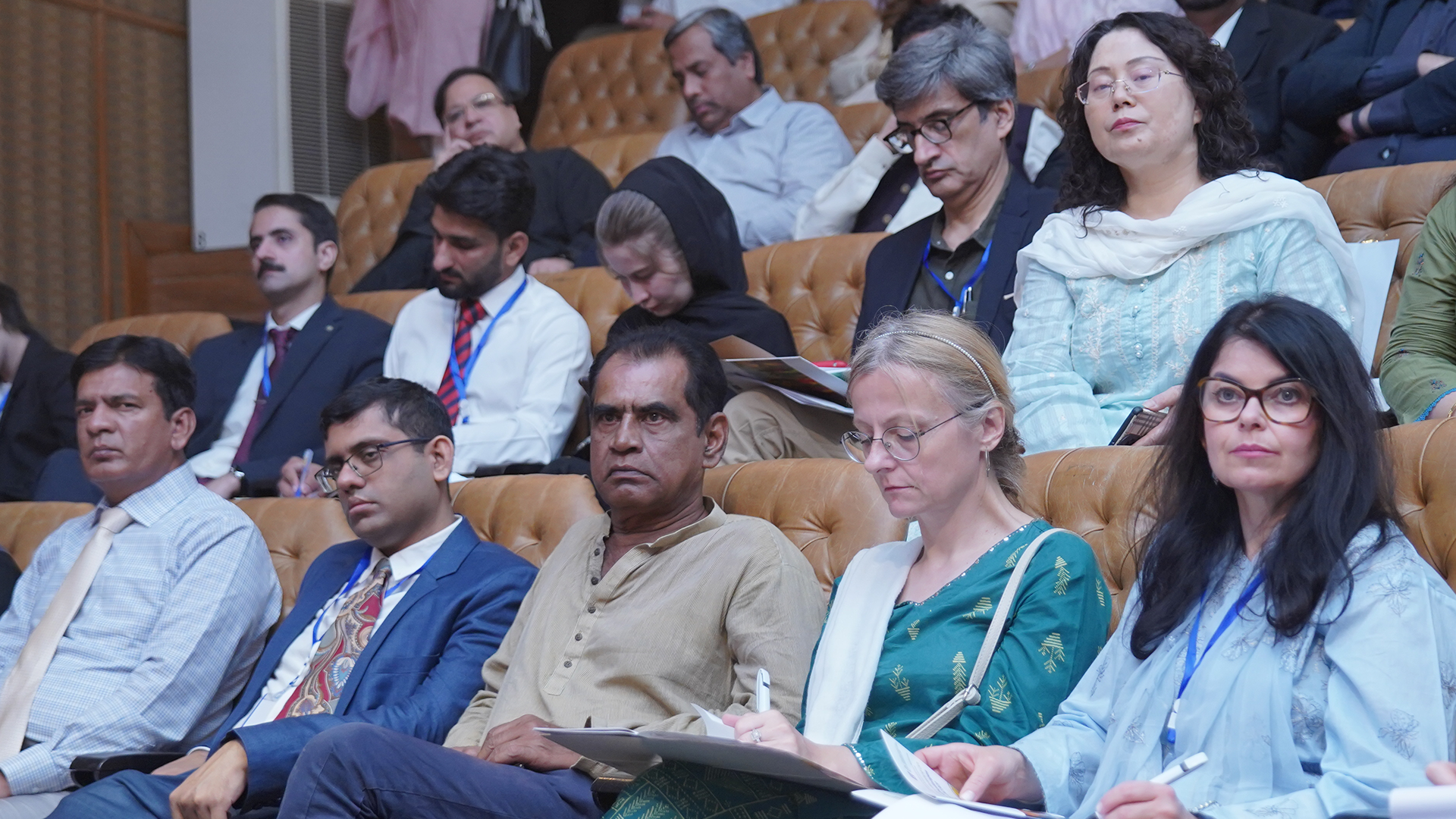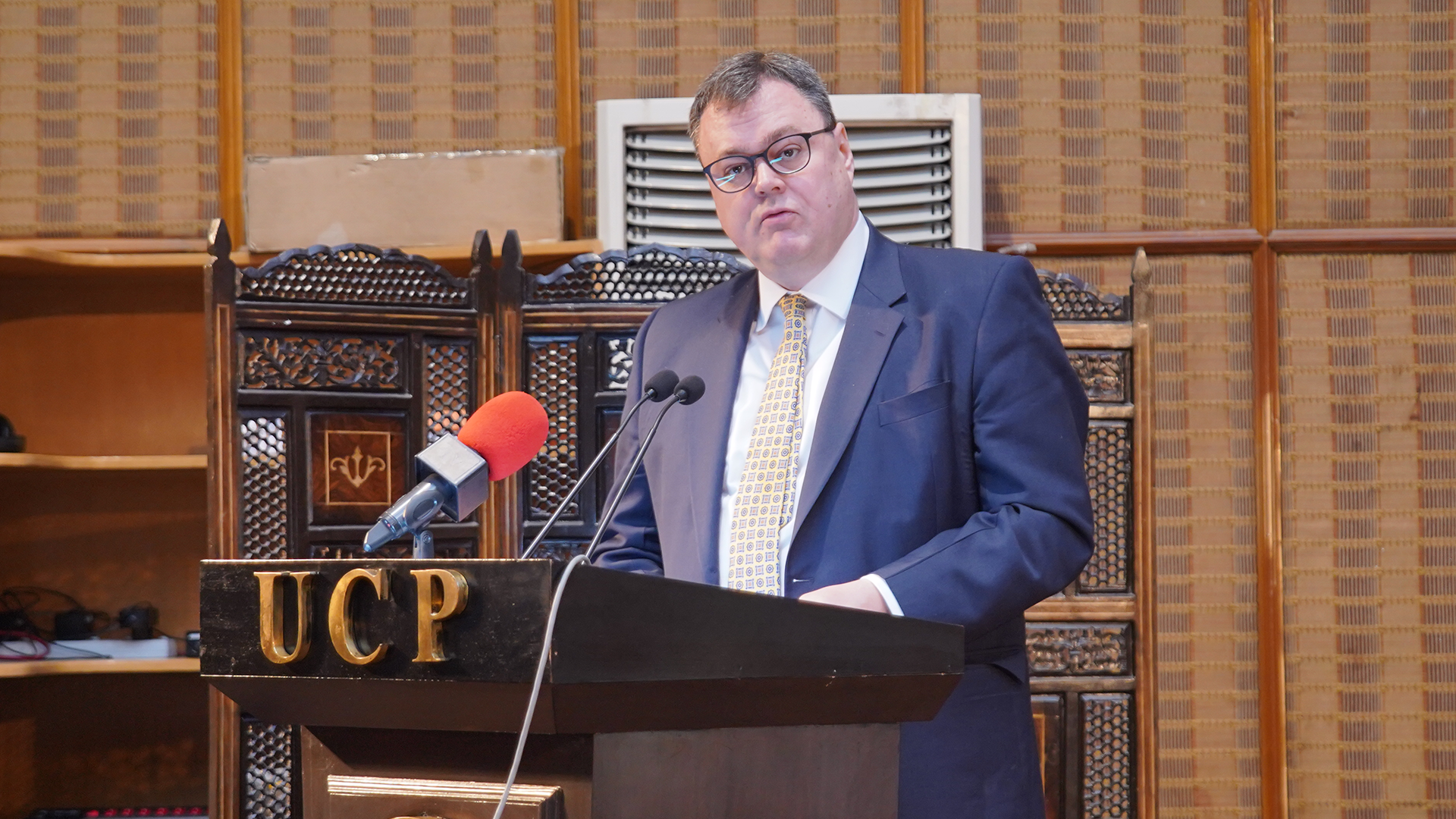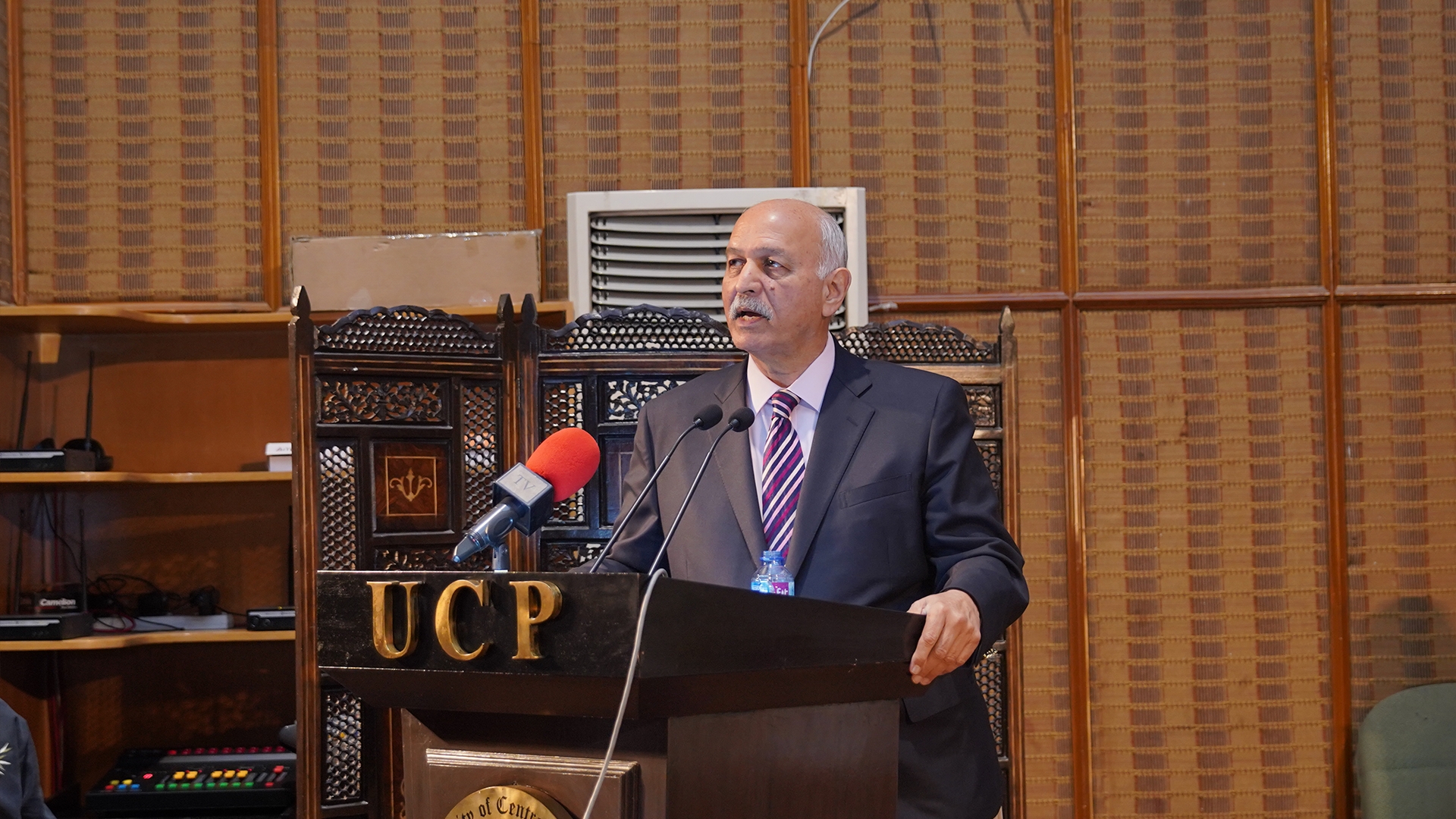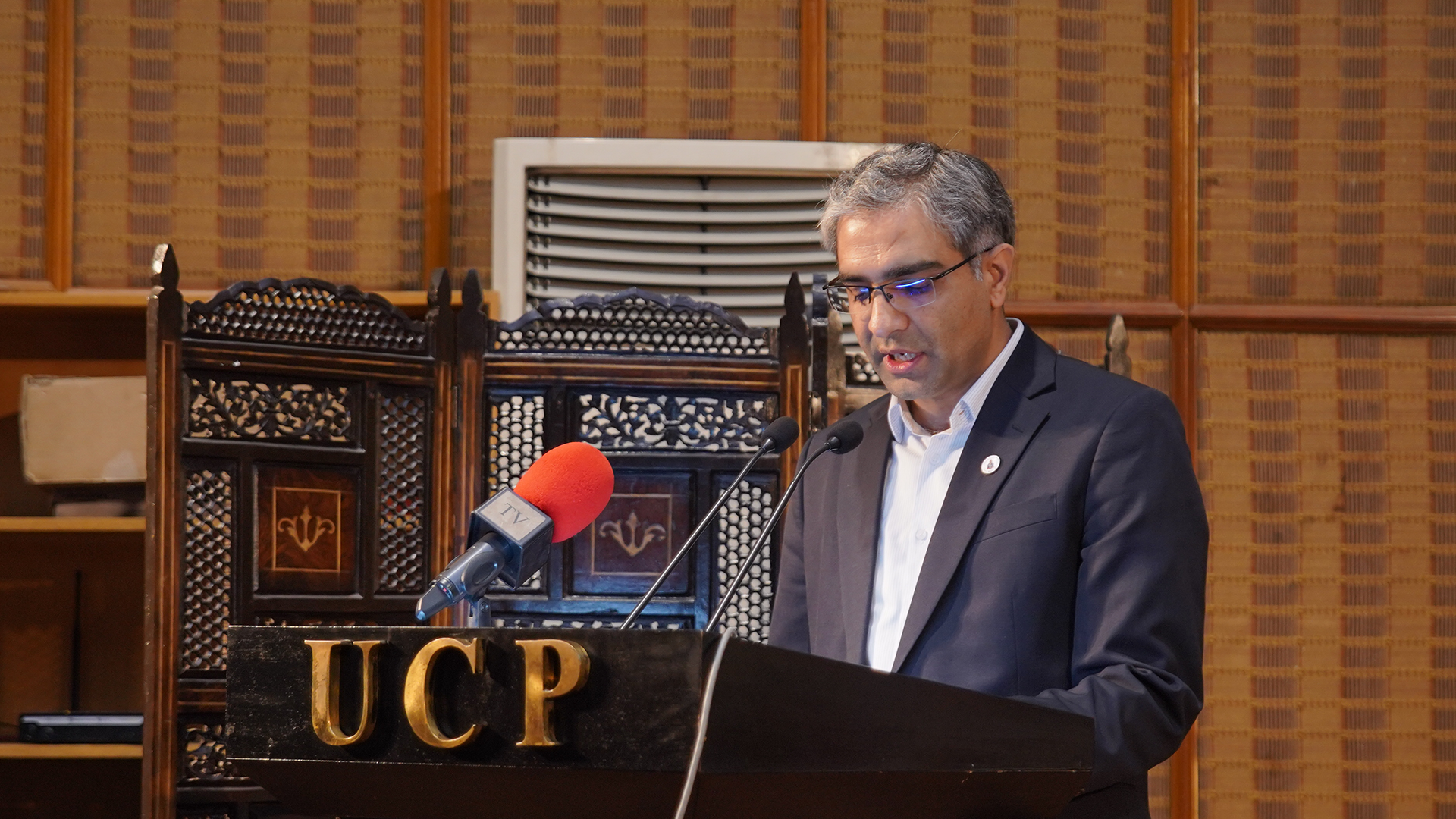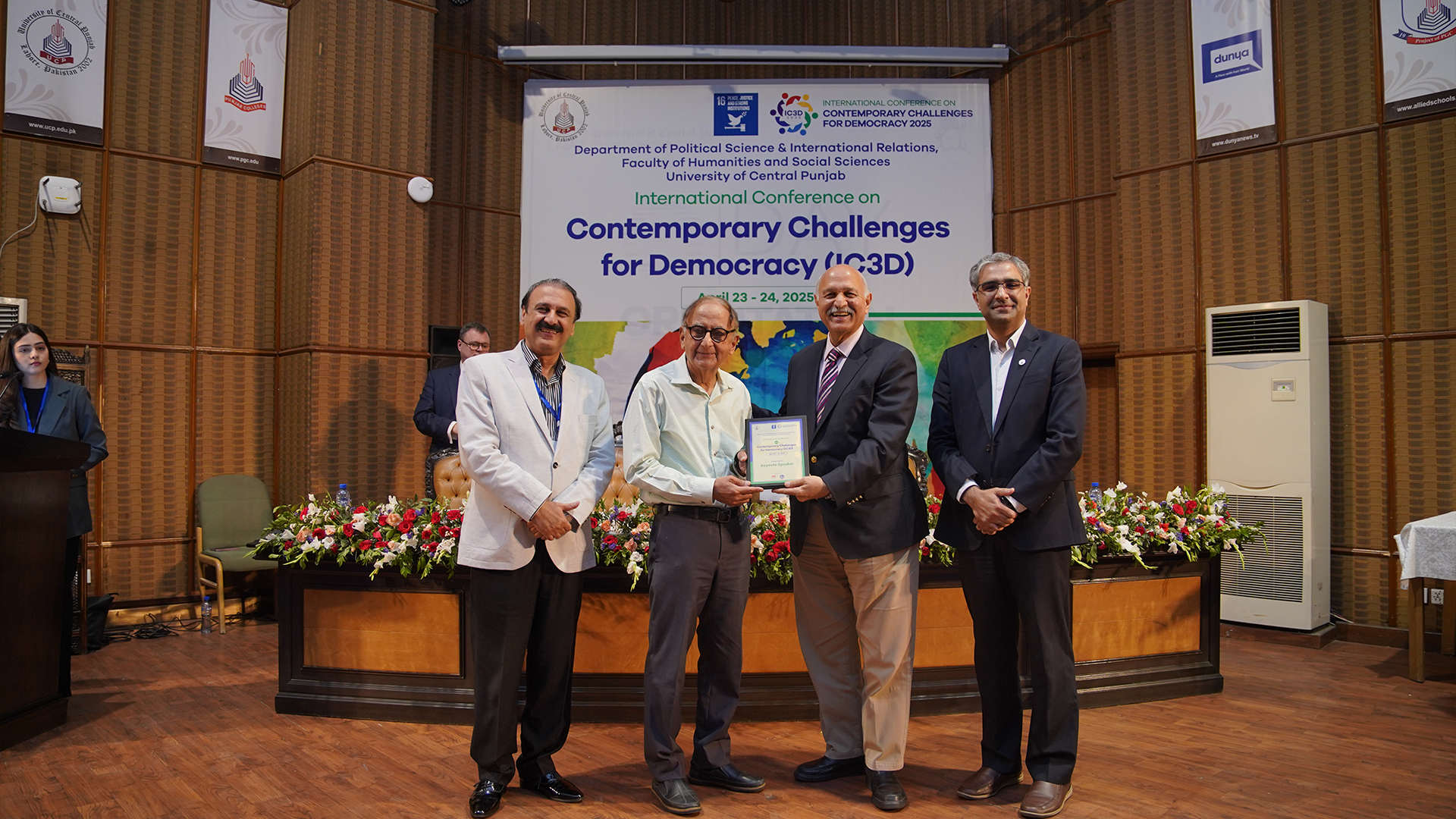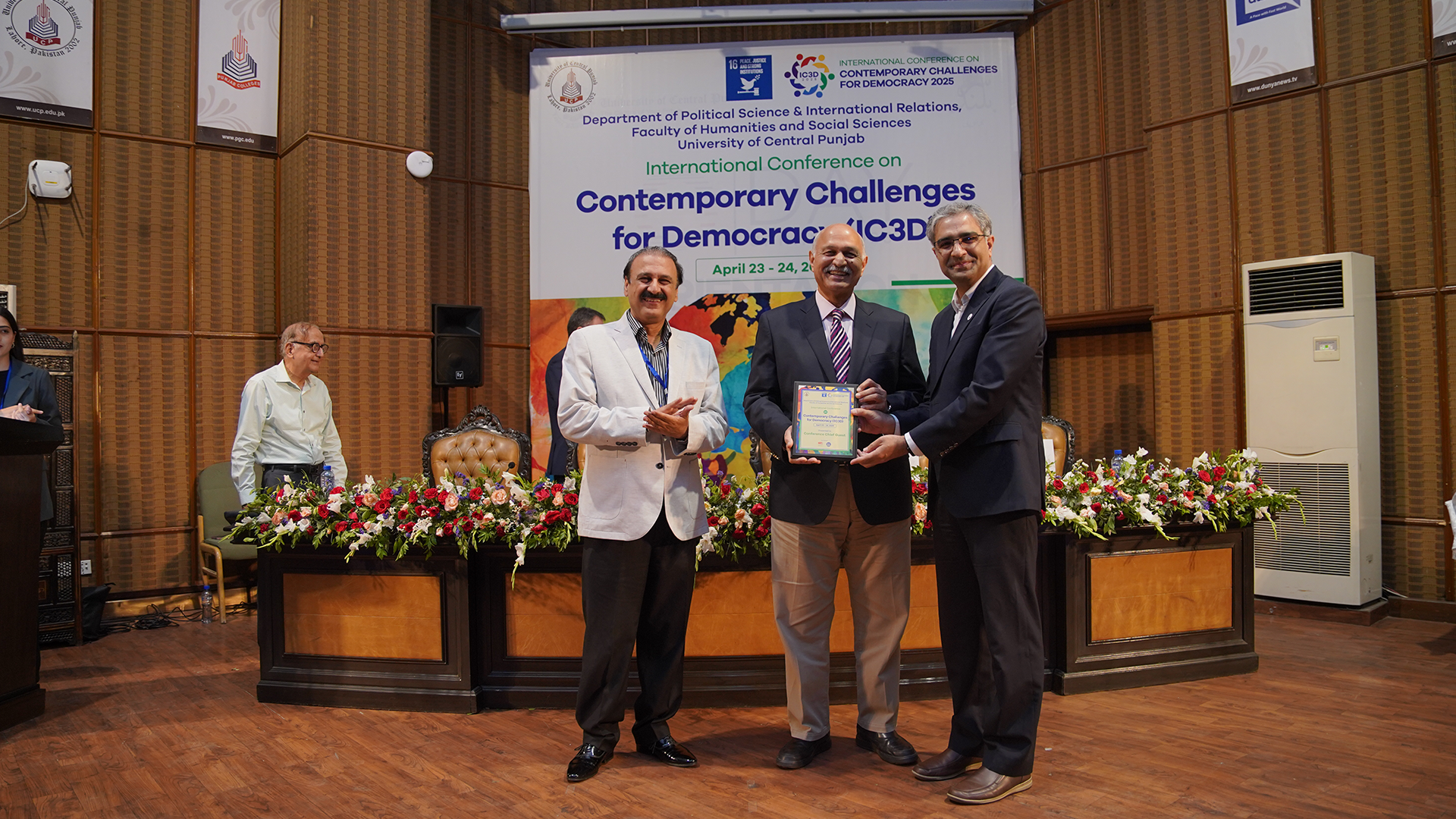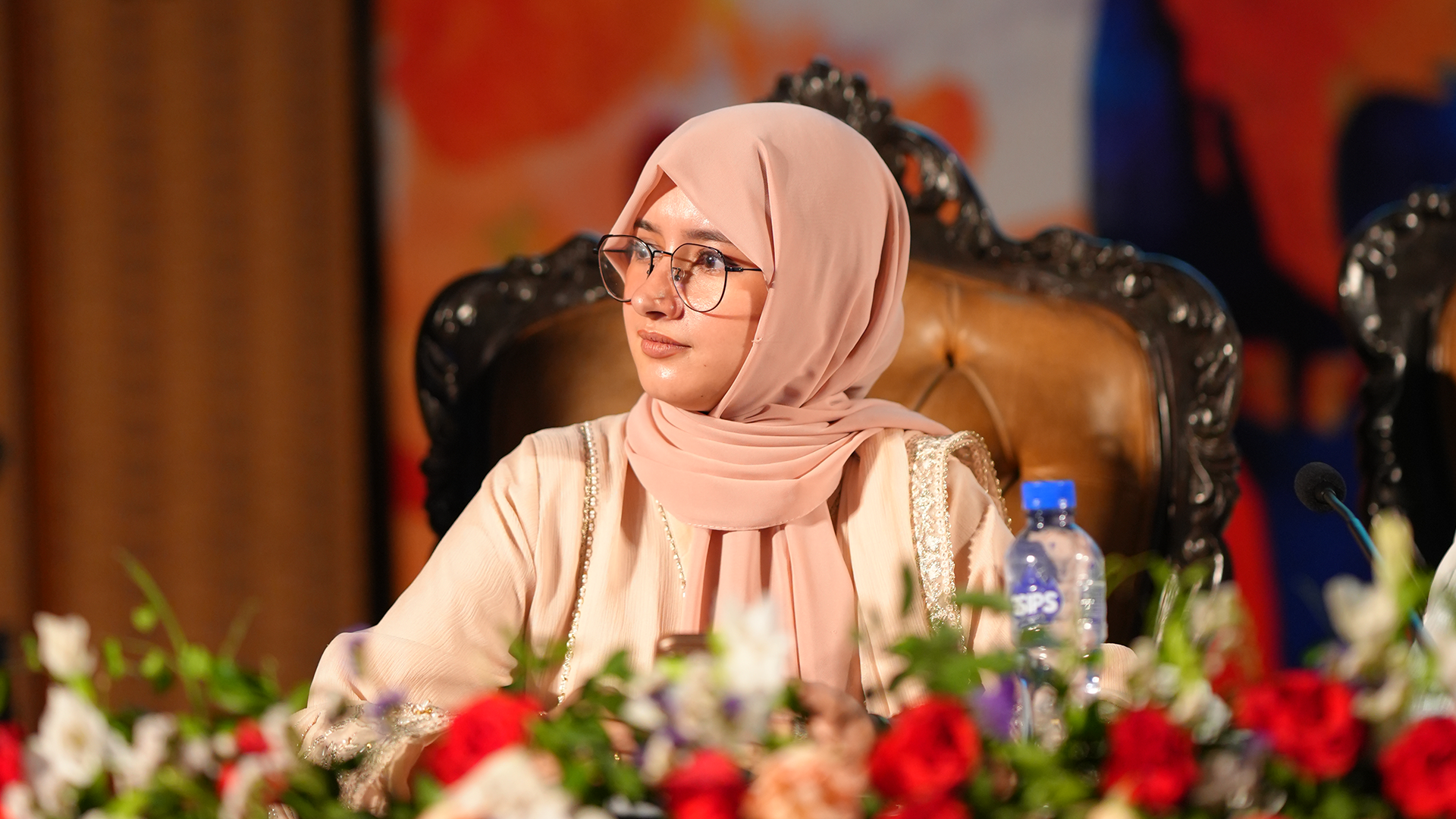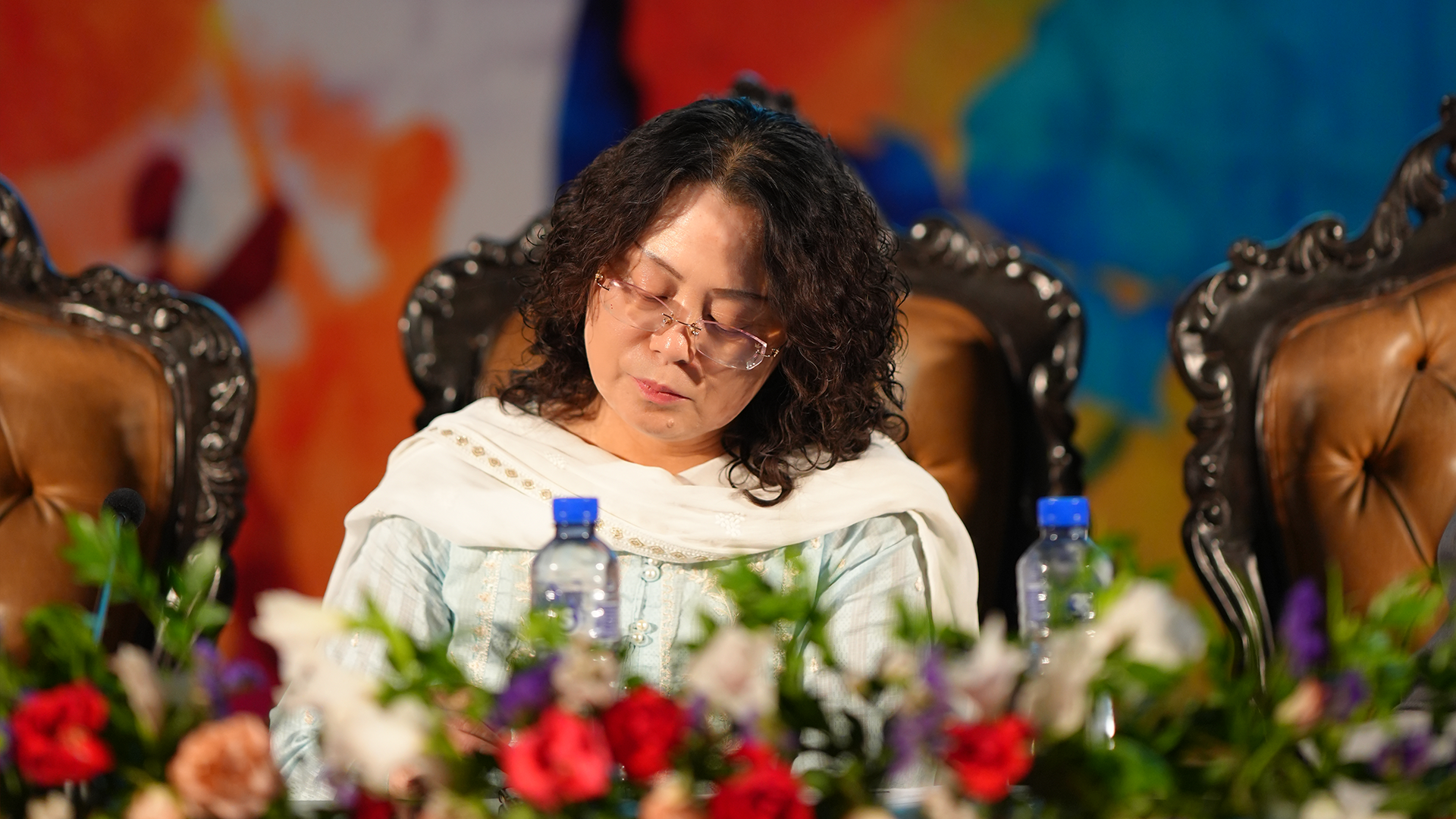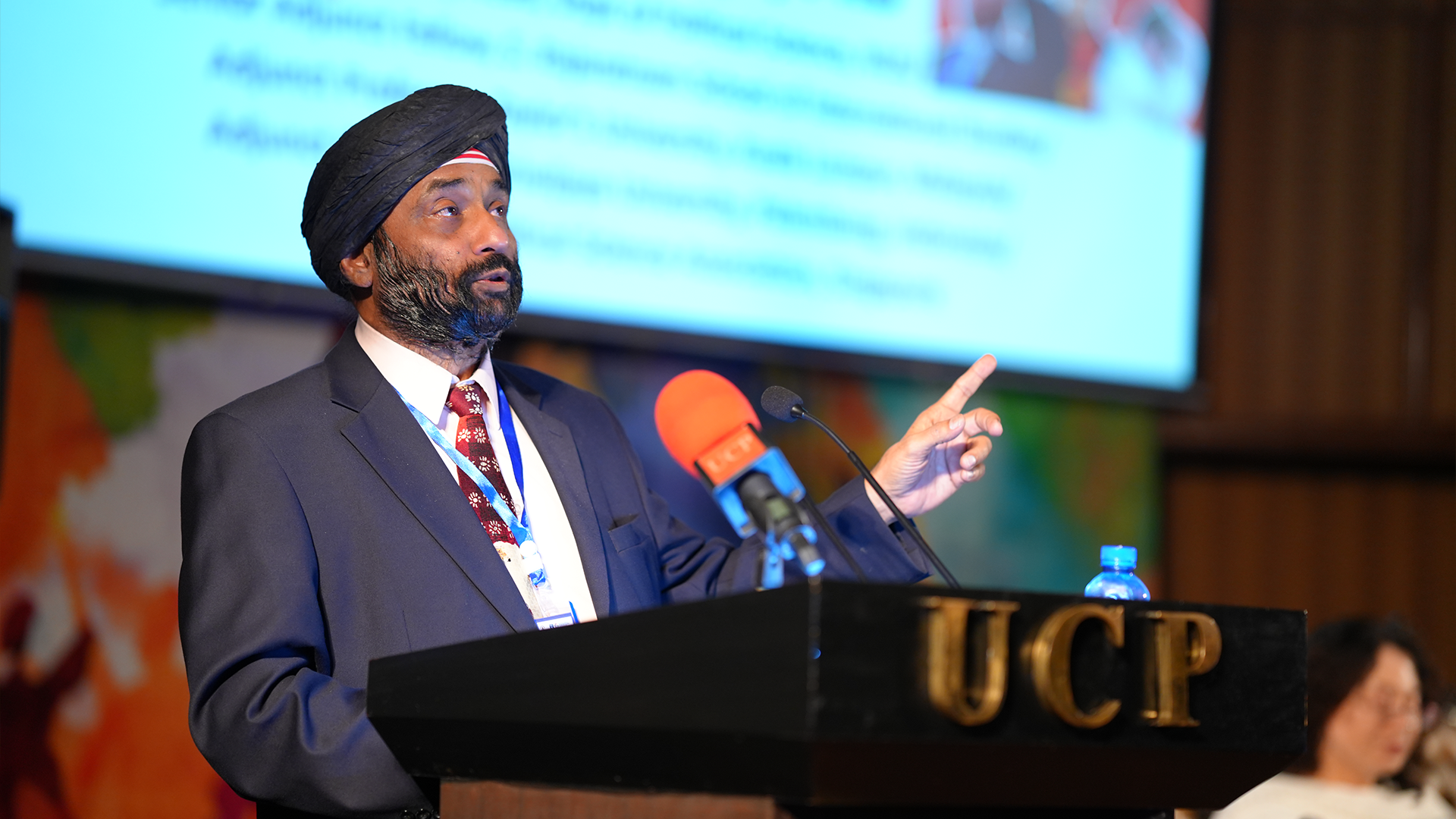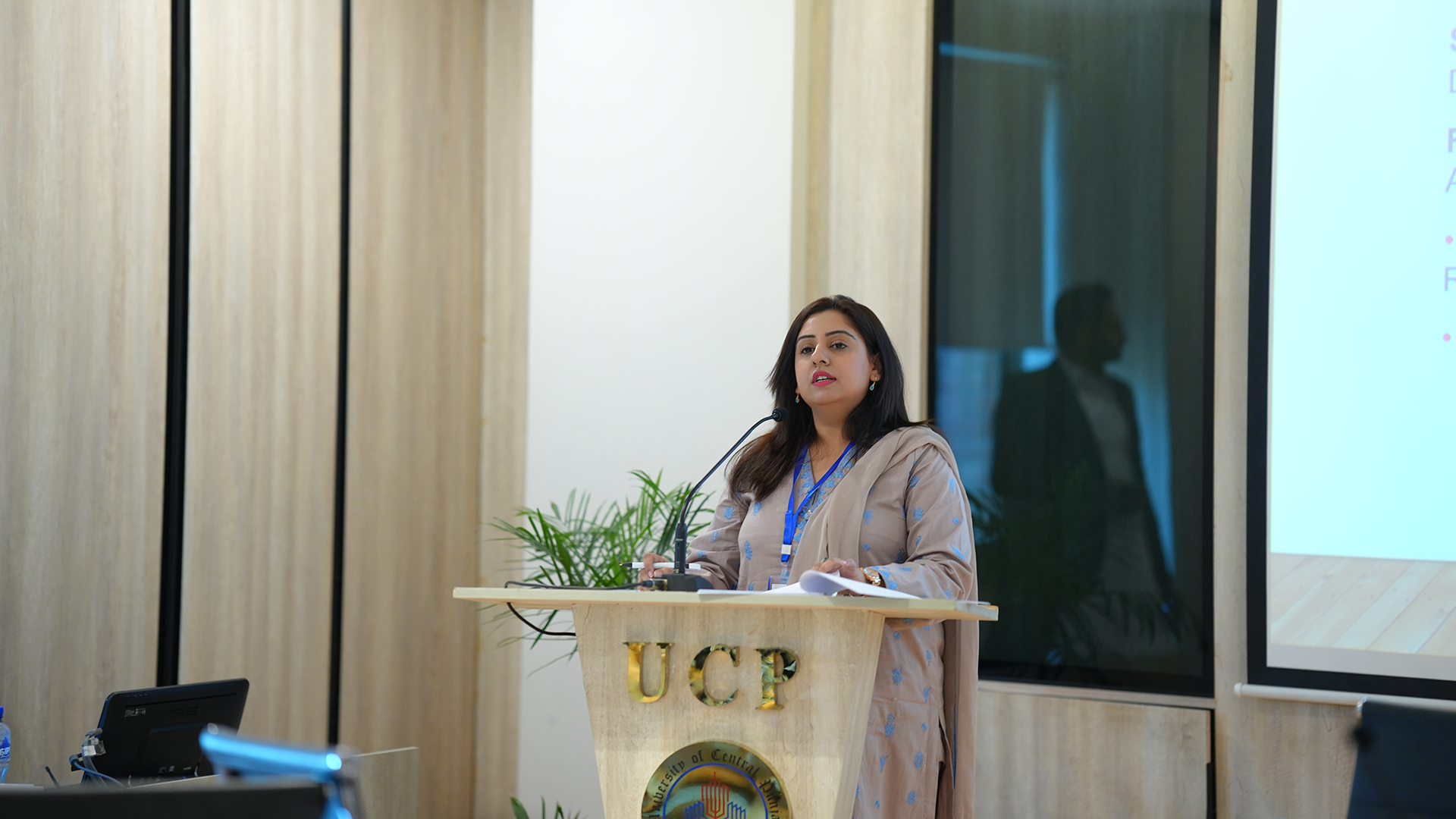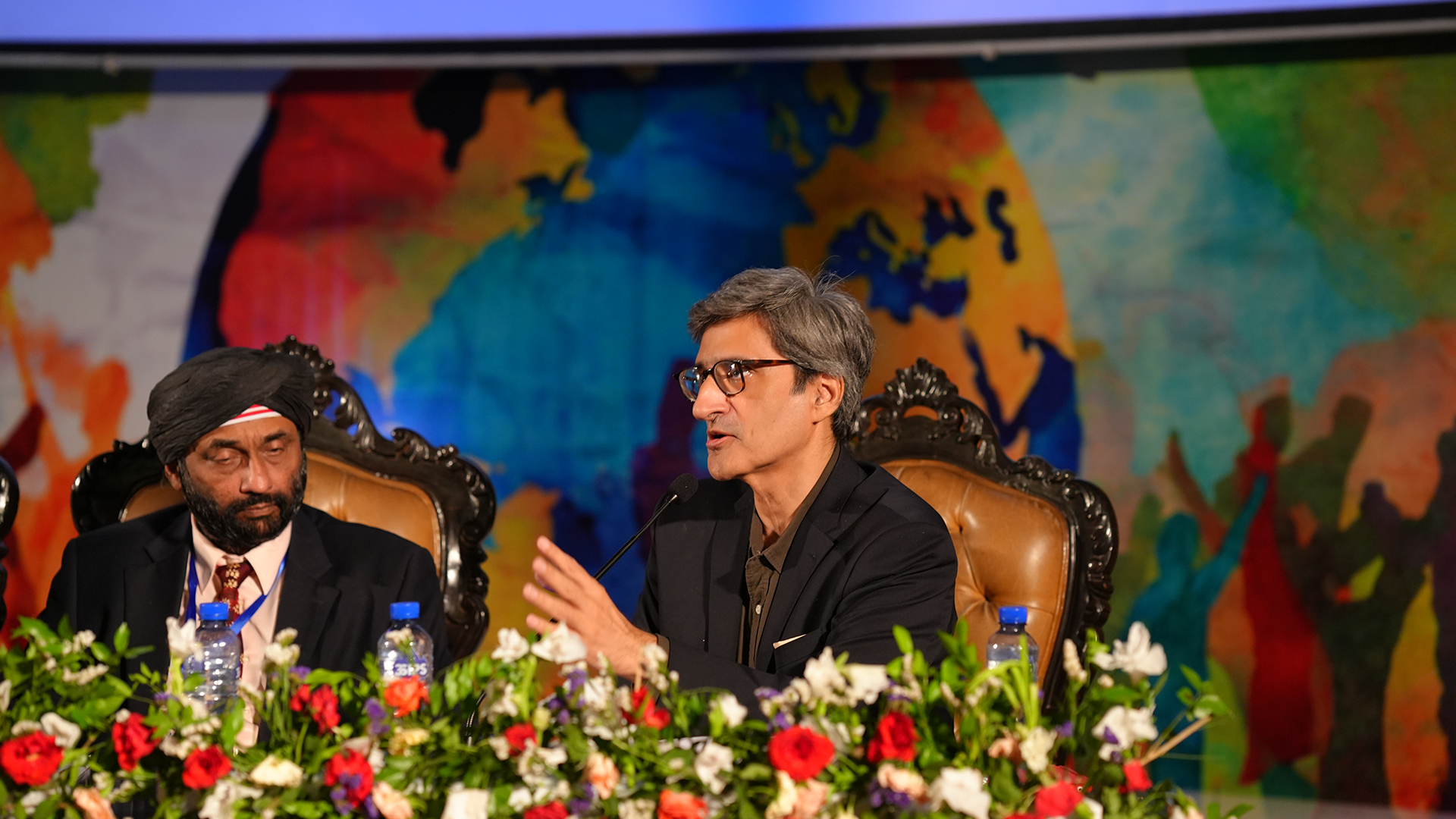Department of Political Science and International Relations, Faculty of Humanities and Social Sciences organized a two-day International Conference on Contemporary Challenges for Democracy (IC3D) on April 23 & 24, 2025. It brought together eminent academics, diplomats, researchers, and policy experts from Pakistan and worldwide. It featured dialogues on global and regional challenges facing democratic governance, focusing on populism, authoritarianism, human rights, ethnic politics, democratization in developing states, and the role of traditional and digital media in democratic processes.
Chief Organizer, Prof. Dr. Khalif Manzoor Butt, Dean, Faculty of Humanities and Social Sciences, welcomed the guests and highlighted the significance of scholarly dialogue on democracy. The keynote speakers for the session were Dr. Hasan Askari Rizvi, renowned political analyst and former Caretaker Chief Minister of Punjab and His Excellency Per Albert Ilsaas, Ambassador of Norway to Pakistan. Chief Guest, Senator Mr. Mushahid Hussain Sayed, Former Federal Minister, delivered an insightful address reflecting global democratic trends and Pakistan’s political landscape. Pro-Rector, Dr. Hammad Naveed concluded the inaugural session with his remarks and formally presented souvenirs to the keynote speakers and the Chief Guest.
Day 1 featured parallel sessions under the theme “Populism: A Challenge to Democracy?”. Distinguished speakers such as Dr. Bilveer Singh, National University of Singapore, Dr. Xiaoqing Xie, China University of Geosciences, and Ahmad Nazir Warraich, an independent senior policy and governance specialist, discussed the rising wave of populism and its impact on democratic institutions globally. Other notable presenters included Dr. Sumeera Imran (National Defence University), Muneeba Shahid (IIUI), Muneeza Mirza (FC College), Prof. Dr. Ghulam Akbar Mahesar (University of Sindh), Sara Rauf and Muhammad Bilal (UCP), contributing meaningful research on topics ranging from political leadership to democratic regression in South Asia.
Day 1 explored the theme of “Democracy, Security, and Human Rights”. Aaisha Siddiqua (University of Punjab), Mudassar Ali Iqbal (Dunya News), Shyamal Kataria (University of Sharjah), Dr. Safdar Hussain (University of Reading), and Dr. Akansha (University of Delhi) examined the intricate balance between democratic values, state security, and human rights, particularly in conflict-affected regions like Kashmir, Myanmar, and Afghanistan.
Day two sessions explored the theme “Democratizing Developing States”. These sessions, chaired by Prof. Sajjad Naseer and Mr. Muhammad Azam Khan, featured Dr. Lubna Sunawar (NDU), Dr. Maria Eleonora Hebisz (University of Lodz, Poland), Anish Mishra (Heidelberg University, Germany), and Tariq Khan (Institute of Global Dialogue, South Africa). From UCP, Ayesha Aqeel, Muskan Zahra, and Maida Khan presented impactful research on youth participation, peacebuilding in Afghanistan, and post-conflict democratic failures.
Further sessions included “Ethnic Groups and Democracy”, where Husnain Shabir (University of Gujrat), Hina Nasir (Comsats Lahore), Yawar Hayyat (LCWU), Adnan Khan and Majreeha (UCP) discussed ethnic representation, military influence, and democratic challenges in South Asia. It followed a panel on “Electoral Authoritarianism and Democracy”, featuring papers by Mansoor Zaman (UCP), Dr. Nadia Zaheer Ali (LCWU), Mahnoor Nosherwan (UCP), Awais Chaudhary, and Dr. Lianboi Vaiphei (University of Delhi) addressing comparative democratization and authoritarian trends in Europe and Asia.
The session titled “The Role of Traditional and Social Media in Democracies”, chaired by Dr. Yaqoob Khan Bangash (ITU Lahore), brought forward digital era concerns. Notable contributions came from Alham Tariq (UCP) on digital authoritarianism, Suffian Zafar (PU) on surveillance versus civil rights, Sanwal Kharal (Aston University) on digital political participation of women, and Dr. Adam Saud on rural digital empowerment in Pakistan.
A special highlight of Day 2 was the Policy Dialogue Session, which served as an interactive forum for senior scholars and practitioners to discuss practical solutions to contemporary democratic crises. Dr. Mohammad Irfan Ali Fani, In-Charge, Department of Political Science & International Relations, University of Central Punjab, moderated this session.
Chief Organizer, Prof. Dr. Khalid Manzoor Butt marked the formal conclusion of the conference with a comprehensive summary of the conference proceedings. Chief Guest Malik Muhammad Ahmad Khan, Speaker of the Punjab Assembly, delivered a compelling speech on the importance of democratic evolution and inclusive governance in Pakistan. It was followed by Pro-Rector Dr. Hammad Naveed’s closing remarks and distribution of souvenirs to presenters and organizing members.
IC3D 2025 was a landmark academic event for the University of Central Punjab. It not only provided an inclusive platform for critical debate on democracy but also fostered collaborations between local and international scholars. The diversity of themes, excellence of presentations, and involvement of faculty and students reflect the university’s commitment to intellectual leadership in the field of political science and international relations
